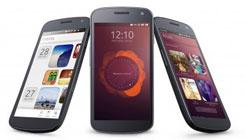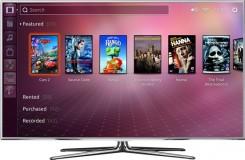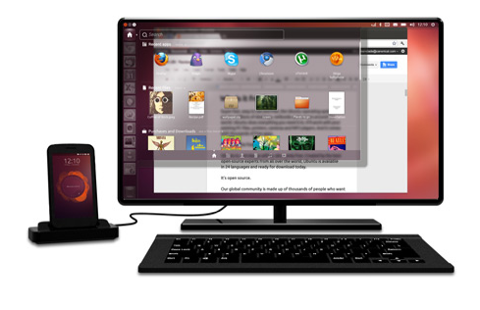A lot has happened with Ubuntu over the past couple of years as the community has tried to tap into a bunch of different markets. Showing my bias, I've always thought it made sense to run Linux on everything, though putting that concept into practice has certainly been challenging for the Linux community. Will they do it? Here's a quick rundown on Ubuntu's current activities.
UbuntuKylin
China's Kylin Linux OS has combined forces with Ubuntu to produce UbuntuKylin. The project is similar to other Ubuntu variants, such as Xubuntu, Kubuntu and Edubuntu. Going beyond simply adding localization, UbuntuKylin emphasizes usability, paying particular attention to keyboarding and input methods specific to the Chinese language. It will also integrate the popular Chinese WPS office suite into the mix, although LibreOffice will still be the default. A music search tool, called Unity-China-Music-Scope, will round up tunes using the Baidu search engine. The Chinese Calendar application is billed as the authoritative permanent calendar for UbuntuKylin, and it will include various festival dates and solar terms, also specific to China. Plus, there's a weather gadget integrated into the desktop that will pull in data from the China Meteorological Administration. According to OMG Ubuntu, the project has backing from the National Software and Integrated Circuit Public Service Platform (CISP), the National University of Defense Technology (NUDT) and indirect backing from contributors in the Chinese government. Canonical will supply joint engineering support. Other Chinese Linux distributions include Red Flag Linux and Asianux.
Ubuntu Touch
This is Ubuntu's mobile smartphone interface. Running core apps without the need for Java, Ubuntu on a smartphone should theoretically be fast and reliable. Aiming to be an all-around computing device, the Touch-equipped phone will seamlessly become a full desktop PC and thin client when docked. Developers might take a look at its heavy support of HTML5, C/C++ and Javascript. Full OpenGL graphics support should be of interest to game programmers. Canonical says that their Ubuntu SDK will make it easy to push applications across all platforms. An Ubuntu phone might be the perfect complement for an Ubuntu TV.
UbuntuTV
Canonical is also wading into the TV OS arena, aiming to replace the operating system on x86 and ARM-based systems. The system needs 1 GB of RAM and at least 512 MBs of video RAM. As expected, it uses an HDMI interface for audio and video output. Putting a Linux back-end in a TV certainly brings up some interesting possibilities for hacking. I'd think security would become a non-issue, considering the Linux-based tools available (firewalls, diagnostics, network admin, and monitoring). Add in hooks for serial, USB, Bluetooth and network access with microcontrollers (like the Arduino and BeagleBone), and you have a recipe for truly inventive, immersive entertainment experiences. Users will have to wait a bit longer to buy TVs with Ubuntu installed, as they haven't made it into retail channels yet. Canonical has a Wiki page to get you started, though.
Total Device (World) Domination
Canonical clearly has big plans for the future, though it remains to be seen whether it will be the all-inclusive No. 1 Linux distribution. Red Hat still has a strong following, and according to ZDNet, in 2012 it was the first Linux company to top the $1 billion yearly revenue milestone.
Related Links
- WPS Office [Kingsoft - in Chinese]
- OMG Ubuntu - Kylin story [OMG Ubuntu]
- Ubuntu TV Page [Ubuntu Wiki]



